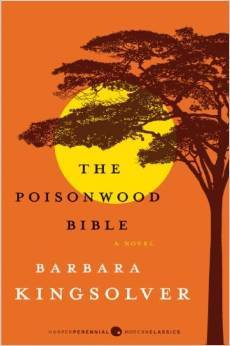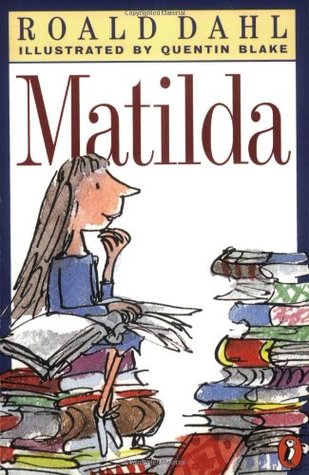This is a rather fun version of the game 'Would you Rather?' I saw this at the blog of The Once Lost Wanderer and decided to take on the challenge. Please feel free to do the same. Here goes.
Would you rather have a friend who loses your books or one who dog-ears them?
Ideally neither, but I guess I'd go for the dog-ears, as I hate to lose a good book. But don't let that cheeky dog-earer think I'll ever lend them another one!
Would you rather secretly love a book everyone hates, or secretly hate a book everyone loves?
Definitely the first. It's fun to daydream about an unpopular story to myself, whereas listening to other people rave about boring books gets old very quickly.
Would you rather be stuck on a very long plane or train ride without a book?
The train, because when I travel by land, I can zone out and watch scenery pass by. In a plane, there's only a certain amount of cloudscape I can handle before wanting the diversion of a good book.
Would you rather have dinner with your favourite author or your favourite character?
Well, dinner with your favourite author means you can attempt to influence the way the story pans out, if they haven't finished writing their series. But I'd rather have dinner with my favourite character. It's the characters of a story who capture my imagination and fill my dreams, not the author, who is really just a gracious conduit. So sorry J.K. Rowling, dinner in the Great Hall of Hogwarts with the cast would trump a meal with you. I'm sure she wouldn't be devastated to hear it.
Would you rather date a character you have a crush on, or your crush in real life?
I've had crushes on many, many fictional characters over the years, and since they generally all end up married to Ms Right in their own worlds, I'd better say my crush in real life, who turned out to be my husband. He thinks all the book characters I've had crushes on remind me of him anyway. Is that a safe answer?
Would you rather have your favourite book turned into a movie, or your favourite movie turned into a book?
Both options make my heart skitter a bit, but I'll say movie to book. There's always a chance that I'll hate the casting the other way around, and book to movie is far more common anyway. In fact, I'd like a try at writing a good novel based on an excellent, obscure film myself.
Would you rather read a book with an annoying cliffhanger, or one where your favourite character is killed off?
Definitely the cliffhanger! Having the best character die has left permanent scars on my emotions. It's so heartbreaking, I've even been known to sneak a peep at the last couple of pages, just to be forewarned before I commit myself. (Check out this post, about tragic literary character deaths.)With an annoying cliffhanger, I can imagine eventual scenarios myself anyway, which I consider one of my specialties.
Would you rather lose the ability to read any new books, or the ability to re-read books you've already read?
That's a tricky question, since I love doing both. Maybe I'll choose the ability to re-read, since there is a larger range to keep reading if I have all new books to choose from. It'd still hurt though, because I love re-reading favourite sections of a story, and experiencing emotional highs all over again. Often I've found that I notice different things when I re-read, and sometimes even change my opinion in retrospect. So a good re-read informs readers about our own changing mindsets and priorities throughout life. In fact, I think I've just talked myself into changing my mind now. This is one of the hardest questions of all. Can I pass?
(See A Great Reason to Re-Read Novels)
Would you rather live in a library or a bookstore?
The library! There will always be far more choice, because bookstores are very limited in what they choose to display on their shelves. Mostly it's best-sellers, or highly promoted books published within the last six months, apart from those well-known titles which are always there. The library has far more obscure surprises waiting to be discovered. A limitless selection drawing from way back in the past trumps a short shelf life of current popular choices any day.
Would you rather lose your place or get a paper cut every time you read a book?
I don't like physical pain, and it'd mean a lot of paper cuts for a bookworm, so I'll choose losing my place. My mind isn't such a bad bookmark anyway, and I can use it as a chance to cheat and fit in a bit of re-reading from the question before last.
Would you rather always have to read in the dark, or always read books with tiny text?
Both sound annoying, but the tiny text, I suppose. I hope my good reading glasses would be up for it, but I know they wouldn't be any use in dimness or pitch black.
Would you rather read by a fireplace or on the beach?
The cosy fireplace sounds ideal. I love the beach too, but not for reading. I'm not a sun-baker. Harmful UV rays, breezes that flap pages around or gritty sand that gets stuck in your kindle aren't ideal. Whenever I've tried reading outdoors away from my own hammock, I haven't really enjoyed it much, although the concept sounds romantic.
So if you'd like to have a go too, what are you waiting for? Let me know if you do, so I can see your answers. Or leave them in the comments.
Would you rather live in a library or a bookstore?
The library! There will always be far more choice, because bookstores are very limited in what they choose to display on their shelves. Mostly it's best-sellers, or highly promoted books published within the last six months, apart from those well-known titles which are always there. The library has far more obscure surprises waiting to be discovered. A limitless selection drawing from way back in the past trumps a short shelf life of current popular choices any day.
Would you rather lose your place or get a paper cut every time you read a book?
I don't like physical pain, and it'd mean a lot of paper cuts for a bookworm, so I'll choose losing my place. My mind isn't such a bad bookmark anyway, and I can use it as a chance to cheat and fit in a bit of re-reading from the question before last.
Would you rather always have to read in the dark, or always read books with tiny text?
Both sound annoying, but the tiny text, I suppose. I hope my good reading glasses would be up for it, but I know they wouldn't be any use in dimness or pitch black.
Would you rather read by a fireplace or on the beach?
The cosy fireplace sounds ideal. I love the beach too, but not for reading. I'm not a sun-baker. Harmful UV rays, breezes that flap pages around or gritty sand that gets stuck in your kindle aren't ideal. Whenever I've tried reading outdoors away from my own hammock, I haven't really enjoyed it much, although the concept sounds romantic.
So if you'd like to have a go too, what are you waiting for? Let me know if you do, so I can see your answers. Or leave them in the comments.











